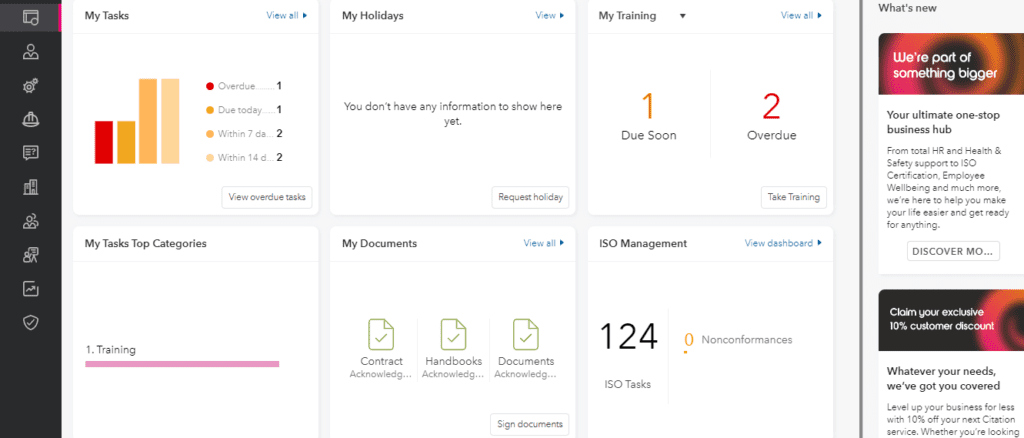Getting to grips with the gaps
We'll spend some time with you carrying out a gap analysis to see how your current processes and procedures match up to the requirements of the ISO Standard. And we’ll collect details of the areas that already do so we can create your bespoke management system for you in our smart online hub, Atlas.






